Do you fear getting close to someone? And intentionally or unintentionally keep sabotaging intimacy in romantic relationships? Here’s why you do it…
Do you have a pattern of being attracted to an emotionally unavailable intimate partner who is emotionally protected and difficult to get close with? Or do you have a history of pushing away the sort of person who is available, caring, and easy to get close with?
Ways We Sabotage Relationships And Intimacy
Whether we are in the process of falling in love or have been married for 16 years, we all know that it feels amazing to be emotionally connected to our partner. Much less understood is how a couple can start holding hands with a close connection and then begin the painful process of falling out of love.
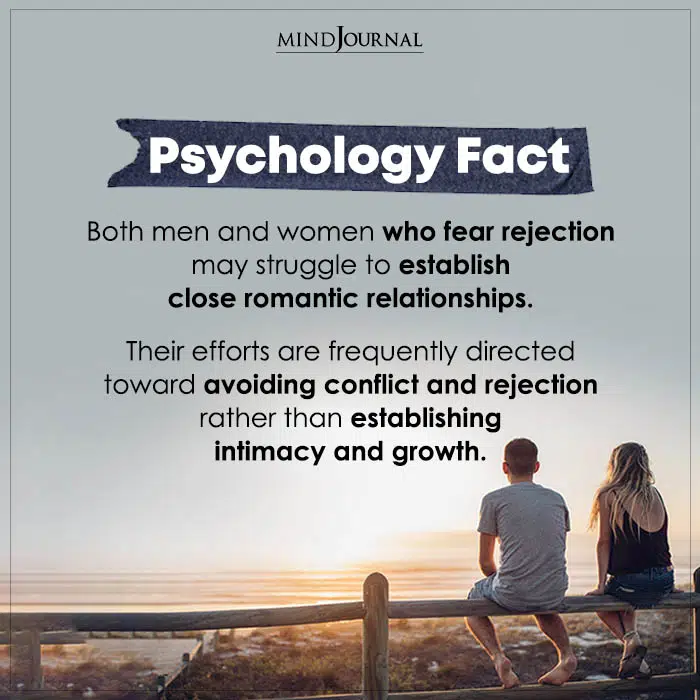
All of us disconnect in different ways. It’s a torturous feeling to experience love when we are so familiar with heartbreak. As Tina Turner reminds us, “who needs a heart when a heart can be broken?”
What are some of your disconnecting behaviors? Some of these might sound familiar:
- Overworking, criticizing, interrupting, withdrawing, drinking,
- Clinging, withholding your opinion, taking on too much responsibility, lying
- Keeping secrets, finding fault, withholding affection
At the heart of these disconnecting behaviors are deeply rooted beliefs about ourselves. “Everything a person is and everything he knows resides in the tangled thicket of his intertwined neurons”[1. A General Theory of Love page 164] forged by the synapses of love and the rupture of attunement.
The authors of A General Theory of Love explain that “a child who knew and loved a deceitful, selfish, or jealous parent does not often learn to love differently at age twenty, forty, or sixty.”[2. A General Theory of Love page 159]
Read 3 Subconscious Reasons Why We Fear Intimacy In Relationships
Sabotaging Intimacy: Here are a few reasons we push our partners away:
- If I get close to you, I’ll lose myself, my freedom, and individuality
- I fear that you’ll leave me, and once again I won’t be good enough
- Intimacy means revealing my true self, and no one likes that part of me.
All of us have heartbreaking memories that cause us to disconnect from love in two self-sabotaging ways: distant intimacy and constant intimacy.
1. Distant Intimacy In A Relationship
The individuals who boast about independence in relationships use distant intimacy to guard their hearts.
Distant intimacy is my shield against being rejected, abused, or controlled in a relationship, horrible feelings I experienced as an innocent child.
Being emotionally aloof allows me to feel less vulnerable, therefore stronger. As a result, I don’t permit myself to personally invest into my relationships, which keeps the feelings of safety. But it doesn’t allow me to feel the connection and closeness that I long for.
Intimacy from a distance is not satisfying because there is less emotion, less passion, and less connection. And the sad truth is, nothing risked, nothing gained.
But the problem is, I never let someone into my heart who could reshape “the bars and walls of [my heart’s] prison into a home where love can bloom and flourish.” [3. A General Theory of Love page 164] It’s risky to stay in a loving relationship. To stand there and embrace loving feelings comes with a tsunami of fear for the distant intimacy lover.
Negative Sentiment Override
Maybe I protect myself by “observing” all of the flaws of my partner, by distancing myself from the possibility of loving them for who they are. As a result, I damage my perception of my partner and the relationship by entering into what Dr. John Gottman calls Negative Sentiment Override. This is a fancy way of saying you’re bias to seeing the negatives, even in our partner’s positive actions.
This is such a powerful bias that couples in the negative sentiment override miss 50% of each other’s bids for connection. A sign of negative sentiment override is a tendency to view harmless or neutral comments as negative. If my partner tells me that she wants to go salsa dancing and my major complaint is how little activities we do together, I will react with suspicion.
If I have a negative sentiment override, my mind will focus on uncovering the bad traits of my partner and ignore the good traits. The big problem is I get a very skewed view of my partner, convincing me that this partner, like the ones before are not “the one.”
The way to fix this pattern is to kindly and slowly open myself up in a safe relationship. My fears and insecurities should be laid out on the table and talked about as a couple, so the rejected partner can respond in a loving way that gives me space to trust them over time.
My partner should not expect things to change overnight. These lifelong patterns take time to heal. To not run away requires me to be willing to risk trusting someone and risk experiencing intimacy. Healing won’t happen overnight, but it can happen over time.
Read The Subconscious Tendency That Erodes Intimacy In Every Relationship
2. Constant Intimacy In A Relationship
On the other side of this coin is the Stage Five Clinger. The “needy” person who desperately wants love, but never feels good enough to allow someone to truly love them.
Any distance in the relationship causes excruciating thoughts about being cheated on or abandoned. So the anxious partner fills this space with text messages, phone calls, and everything they can to get the reassurance they need that for that brief moment their partner isn’t there for them.
The Anxious Partner
Due to the heartbreaking memories of neglect, these individuals often change who they are in hopes of being loved, not knowing that they are becoming someone different than the person their partner fell in love with.
As a constant intimacy lover, my armor is the exhaustive efforts I put forth to be loved. This pattern is often birthed in childhood. At some point in my undeveloped mind, at least one of my partners conditioned me to have to earn love. As I grew up, I felt I had to put forth immense effort to prove myself worthy of love and affection.
So as an adult, if I receive affection and love without earning it, I won’t value it. Since I only value what I put effort into, I will choose an intimate partner who is unwilling to open up and be vulnerable. As a result, I will do anything to win her acceptance, affection, and love.
If I enter into a relationship with a woman whose heart is won without me proving myself, I won’t trust her. Her love was too easy, so my mind will tell me that something must be wrong with her. Maybe I tell myself, “she’s needy and desperate, so I’ll reject her.”
Truth be told, I desperately want what she’s giving. But she is unaware that I haven’t proved myself worthy of it, so something has to be wrong with her, right? Wrong. The big fucking problem is I will reject anyone who openly offers me their love and loyalty.
This is another way we protect our hearts. Because to feel loved as we are comes with overwhelming shame that we are undeserving. So we protect ourselves by falling in love with people who make us earn love constantly, instead of trusting the fact that we are lovable without proving ourselves.
An intimate partner gives their heart not because I earn it, but because they are willing and able to give it. It is impossible for me to actually earn your love. You have to take the emotional leap of love all on your own and offer it to me. It’s a choice the other partner has to make.
If I don’t give you the space to do this, and if I am constantly trying to earn your love, I will sabotage what I want most. Because of my childhood conditioning, I’m not allowing myself a fighting chance to have the relationship I desire.
And sadly, I’ll never risk disconnection. I won’t allow my partner to show up in their own way. Because to trust someone to love me without constant efforts would cause me to confront the painful reality that I am loveable as I am.
This pattern stems from unresolved childhood wounds. The feeling of being close, exposed, and vulnerable, but also unworthy of someone else’s love and affection.
To change the pattern requires you to experience the need to both perform and challenge yourself to resist the urge to “make things happen,” so you can experience a new reality in which love happens without you proving yourself worthy of it. I’d also recommend talking with your partner about your deepest fears, and create connection rituals that let you experience intimacy without earning it.
You’ll also have to learn to stop beating yourself up. It’s never a fair fight. I’d recommend learning how to befriend yourself and do things just for you. Over time you’ll stop the habit of subverting your own goals and desires, and you’ll be able to create the relationship you want.
It won’t be easy, but it will be worth it.
Constant And Distant Intimacy Fall In Love
The partner who feels unworthy of love will often fall in love with someone who is unwilling to return it. As a result, they enter into a toxic relationship which only reinforces each other’s deepest scars.
The distant intimacy partner pushes away the constant intimacy partner, who then tries harder to earn love. The distant intimacy partner will then push them away even harder, putting the relationship into a death spiral of confusion, hurt, and painful disconnection.
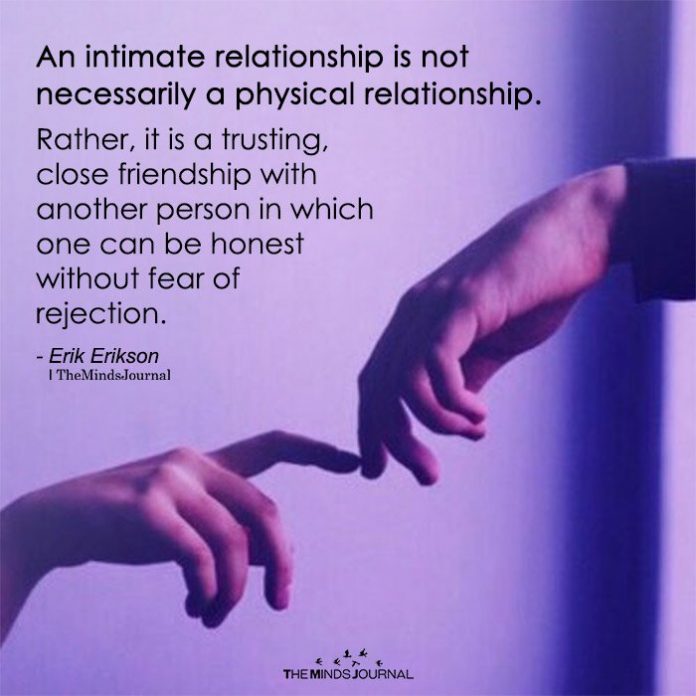
The way through is to empathize with each other’s darkest fears and work with each other to create an intimate language that protects partners and loves them in the way they’ve been seeking their entire life.
Related: 4 Practices To Build Intimacy In Relationships
Love can be a complicated and scary thing, hence sometimes, we tend to self-sabotage relationships. But if you do not give love a chance, how will you see how beautiful a thing it is?
If you fall into the category of intimacy issues, and you tend to self-sabotage relationships, you need to work towards changing that. Remember that you are deserving of love like everyone else.
If you want to know more about the ways in which people destroy intimacy, then check out this video below:
This article was originally published on KyleBenson.net.
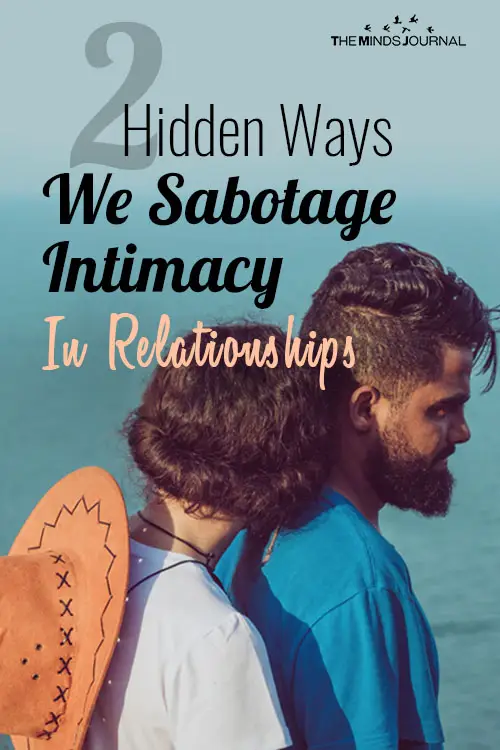
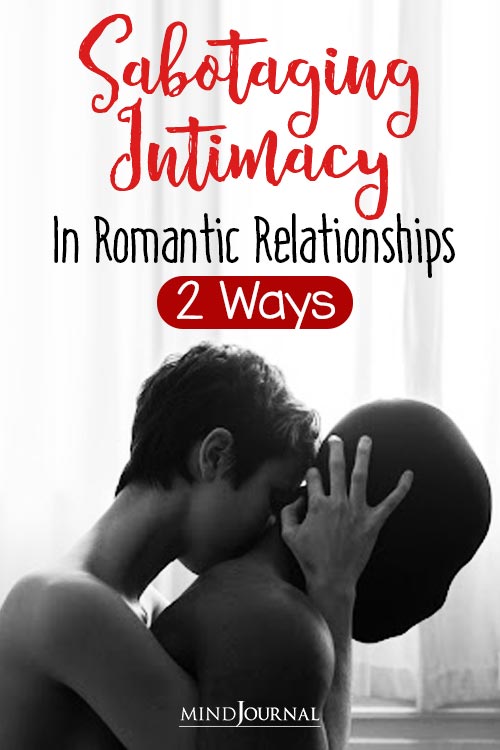
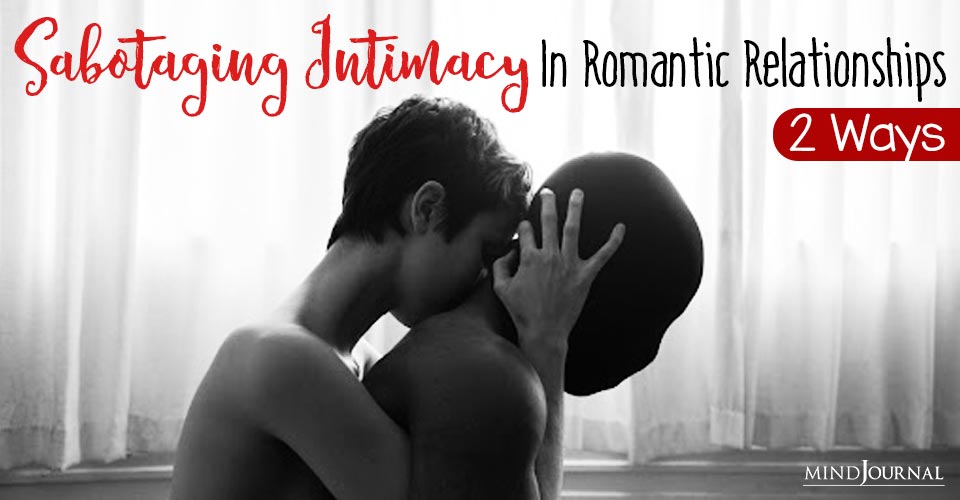



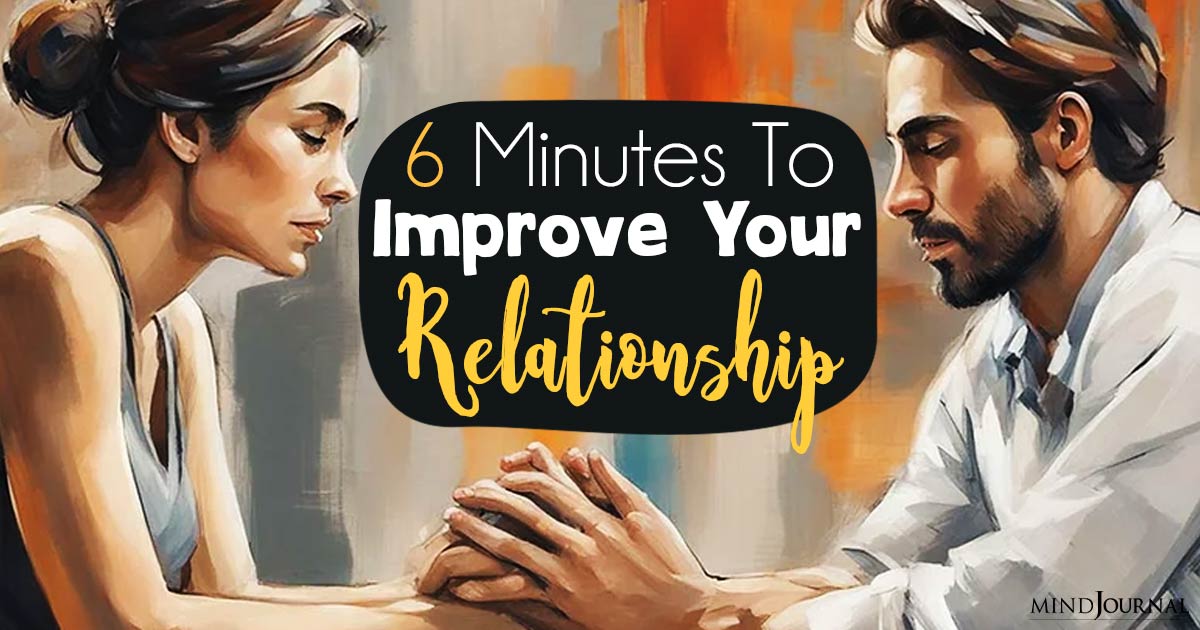
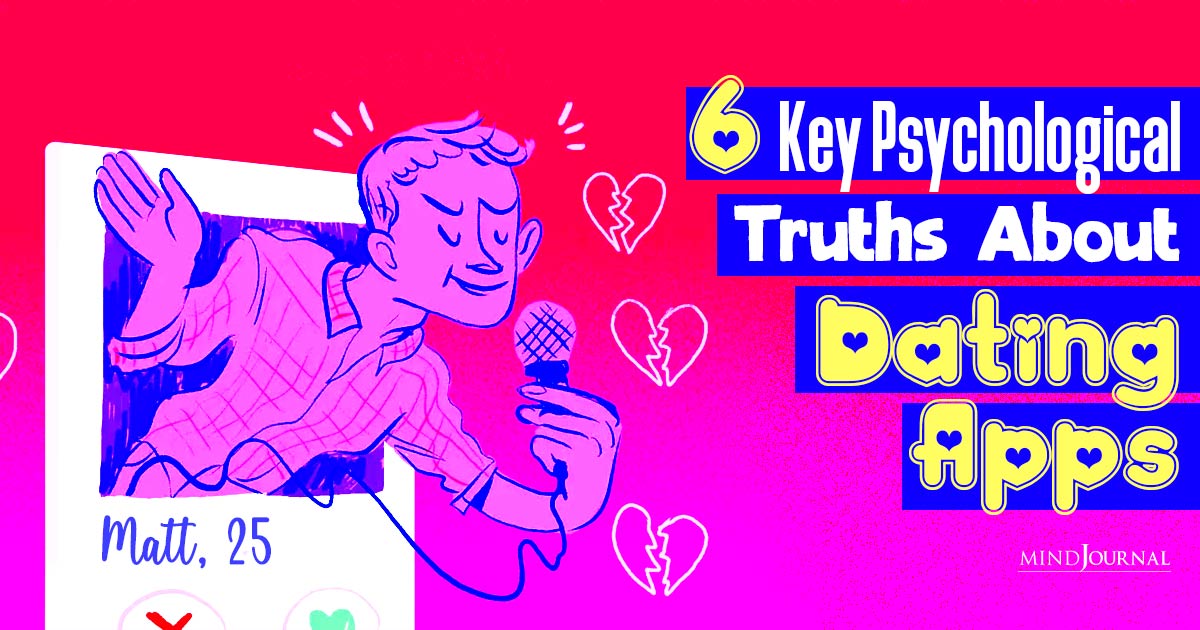
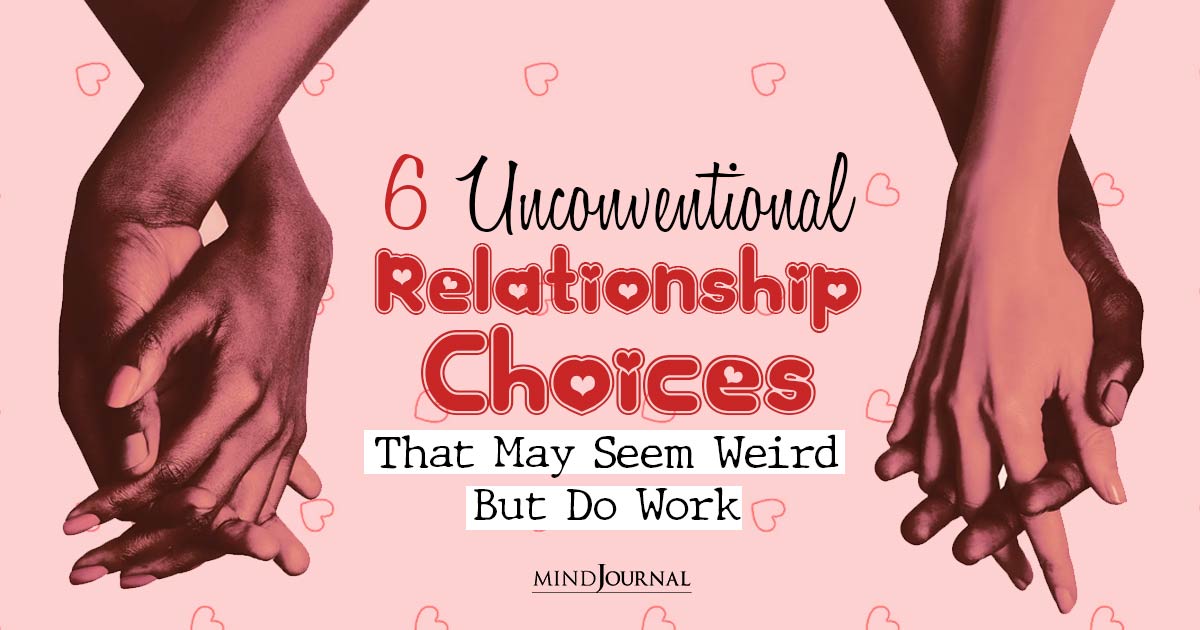
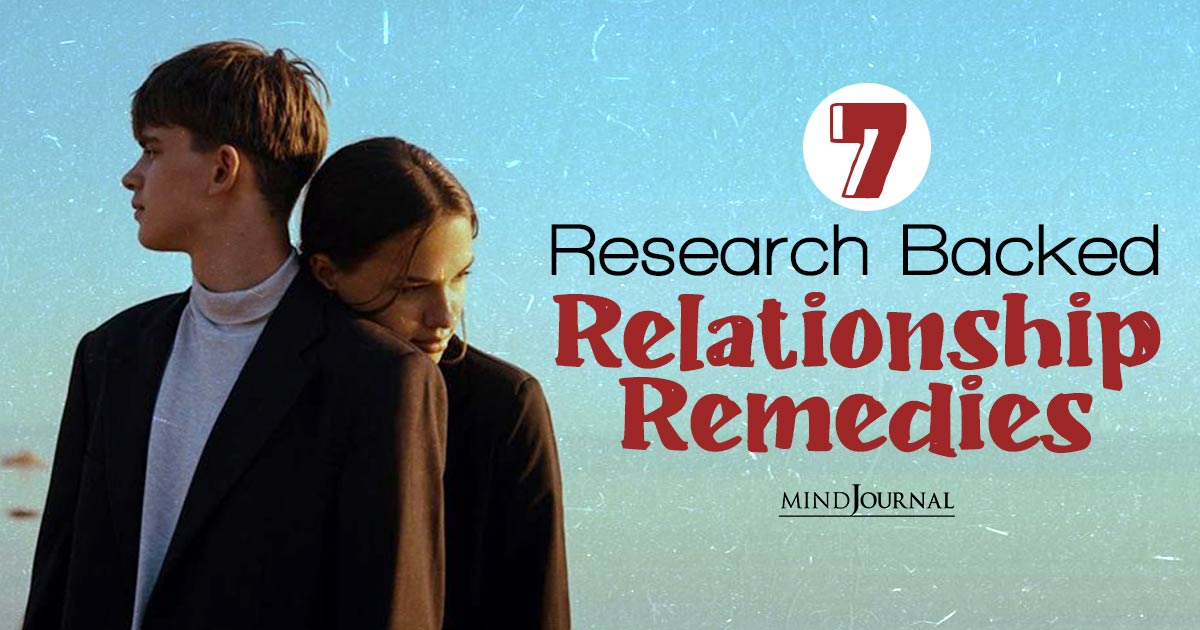
Leave a Reply
You must be logged in to post a comment.